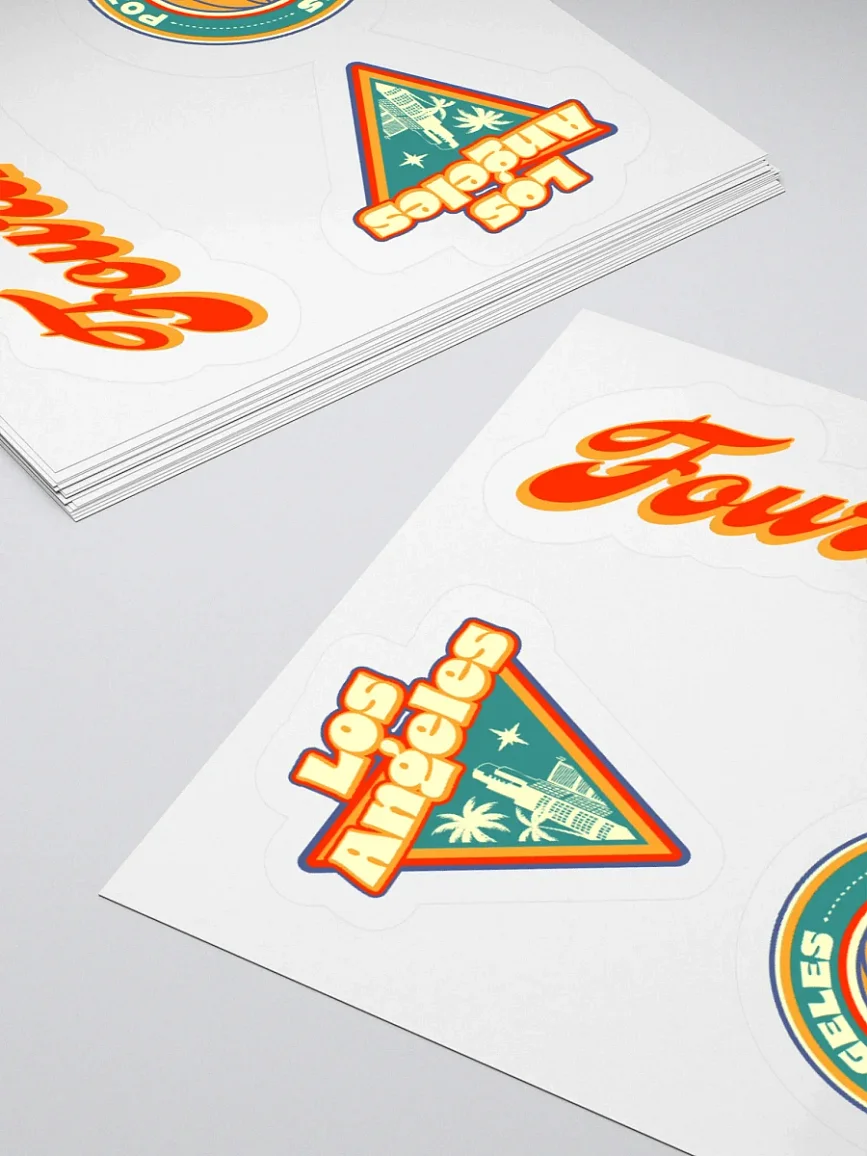Pinterest Affiliate Marketing: Turning Pins Into Profit

Affiliate marketing has become a popular way for content creators and influencers to monetize their online presence. By partnering with businesses and promoting their products or services, affiliates earn commissions on sales generated through their unique affiliate links.
While traditional affiliate marketing often relies on text-based content, Pinterest offers a unique visual platform by showcasing products in an engaging and highly visual format. With Pinterest, creators can design eye-catching “pins” that not only highlight the product but also demonstrate its use or appeal, making it easier to capture the interest of potential buyers.
This gives affiliate marketers a distinct advantage, as the platform's emphasis on visual storytelling allows them to present products in a more compelling way. In this article, we'll explore the world of Pinterest affiliate marketing, providing insights, strategies, and tips to help you turn your Pinterest pins into profits.
What is Pinterest Affiliate Marketing?

Pinterest affiliate marketing is a strategy where you promote products or services on Pinterest through visually appealing pins that include affiliate links. When a user clicks on your pin and makes a purchase through the affiliate link, you earn a commission, creating a passive income stream.
This approach allows you to make money on Pinterest by leveraging its highly visual platform to connect with potential buyers. Unlike traditional affiliate marketing, which often relies on text-based content, Pinterest excels in visual storytelling, making it an ideal place for showcasing products.
By setting up a Pinterest business account, you can access analytics and tools that help optimize your pins for better reach and engagement. Creating eye-catching pins tailored to your target audience not only drives traffic to your affiliate links but also enhances your chances of converting views into sales, maximizing your earning potential.
Is Pinterest a Good Platform for Affiliates?
Pinterest is an excellent platform for affiliate marketers, thanks to its vast user base and unique advantages. With hundreds of millions of monthly active users, Pinterest offers affiliates a large and engaged audience actively seeking inspiration, ideas, and products, making it an ideal platform for promoting affiliate links, as users are often in a purchasing mindset.
Pinterest’s algorithm favors visual content and high engagement, allowing well-crafted pins on Pinterest to gain visibility and reach more people over time. Pinners (Pinterest users) often visit the platform with specific intentions, such as finding products or gathering ideas for future purchases. This makes them a highly targeted and receptive audience for affiliate marketers. To maximize your success, it's crucial to choose a niche that aligns with Pinterest's user demographics and interests.
Although Pinterest offers significant potential, it's essential to approach it with a long-term strategy. Building a strong presence and consistently posting high-quality pins takes time and effort, but the rewards can be substantial in terms of audience growth and affiliate earnings.
Benefits for Creators:
- Access to a vast audience of 552 million monthly active users.
- High engagement from users between 18-44 years of age.
- Algorithm favoring visually appealing pins on Pinterest.
- 96% of top searches on Pinterest are unbranded products.
- The platform allows you to add affiliate links directly to your pins.
- Opportunity to build a long-term, profitable affiliate marketing strategy.
How to Do Affiliate Marketing on Pinterest in 8 Steps
1. Choose a Niche
Selecting the right niche is a fundamental step in achieving success with Pinterest affiliate marketing.
Start by evaluating your own interests, passions, and areas of expertise, as aligning with these will make content creation more enjoyable and sustainable in the long run.
Popular niches on Pinterest include home decor, fashion, beauty, fitness, DIY crafts, and food recipes. Research these niches and others to gauge their profitability and assess the level of competition you'll face.
Tools like Pinterest Trends can help you identify trending topics and keywords within your chosen niche. Once you've settled on a niche, take the time to define your target audience in detail.
Understanding your audience's needs, preferences, and pain points will enable you to craft content that resonates with them, increasing your chances of engagement and conversion.
2. Build a Pinterest Profile

Create a visually appealing and informative profile that reflects your brand identity and resonates with your target audience.
Optimize your profile description, board titles, and even pin descriptions with relevant keywords to enhance discoverability and improve your chances of appearing in Pinterest search results.
Incorporating high-quality profile images and maintaining a consistent aesthetic across your boards will help create a professional and cohesive look that attracts followers. Additionally, ensure that your content aligns with Pinterest's community guidelines to avoid any issues that could hinder your growth.
By focusing on these elements, you can build a compelling Pinterest profile that effectively showcases your niche, attracts your target audience, and maximizes your potential as an affiliate marketer.
3. Find Affiliate Programs
Begin by researching reputable affiliate networks such as ShareASale, Amazon Associates, and Commission Junction, which offer a wide range of programs across various industries.
Select affiliate programs that align closely with your niche, as promoting products relevant to your audience will enhance engagement and conversion rates.
When evaluating potential affiliate programs, consider key factors like commission rates, which determine your earnings per sale, and cookie duration, which affects how long you’ll receive credit for a purchase after a user clicks your link.
Additionally, the relevance of the products to your niche is crucial for maintaining trust and authenticity with your audience.
Building relationships with affiliate managers within these networks can also be highly beneficial, as they can offer personalized support, exclusive deals, and valuable insights to help you optimize your affiliate marketing efforts.
4. Create Engaging Pins with Affiliate Links

Designing visually stunning pins is essential for capturing attention and driving clicks on Pinterest, where visual appeal is paramount.
Start by using high-quality images that are sharp, vibrant, and relevant to your content, as these will instantly draw users' eyes. Incorporate compelling text overlays that clearly convey the value or message of your pin while complementing the image, making it easy for viewers to understand what they can gain by clicking through.
Next, integrate your affiliate links into your pins. This can be done by linking directly to the product or service you're promoting within the pin description, ensuring it's relevant to the content and naturally fits within your overall messaging. You should also clearly disclose that your pins contain affiliate links, as this builds trust with your audience.
To maximize engagement, experiment with different pin layouts and styles—such as vertical versus horizontal formats, varied color palettes, and diverse image compositions—to determine what resonates best with your audience.
By continuously refining your approach based on performance metrics, you can ensure that your pins not only stand out but also drive meaningful interactions and conversions.
5. Build Relevant Pin Boards
Creating Pinterest boards that align with your niche and target audience's interests is a powerful strategy for attracting and engaging followers.
Start by organizing your boards around specific themes or topics relevant to your niche. Ensure each board serves a clear purpose and caters to your audience's needs or desires.
Make sure to curate a balanced mix of original pins that showcase your content and high-quality pins from other users. This will not only enrich your boards with diverse perspectives but also foster community engagement.
Incorporate rich pins, which automatically pull in extra details like pricing, availability, or recipe ingredients, to enhance the value of your content and provide your audience with more comprehensive information at a glance.
This approach not only makes your boards more useful and attractive but also helps build your credibility as a go-to resource within your niche.
6. Pin Consistently

Regular pinning is crucial for achieving success on Pinterest, as it keeps your content visible and your audience engaged.
To maximize your reach and influence, develop a consistent pinning schedule that ensures your pins are regularly appearing in users' feeds.
Consistency helps build familiarity with your brand and keeps your content top-of-mind for your followers. Experiment with different times of day and frequencies to identify when your audience is most active and responsive.
This data-driven approach allows you to optimize your posting schedule for maximum engagement, ensuring that your pins reach the right people at the right time.
By maintaining a steady flow of fresh content, you can increase your visibility, attract more followers, and drive more traffic to your affiliate links or website.
7. Optimize Pin Descriptions
Writing compelling pin descriptions is a key strategy for driving engagement and clicks on Pinterest. Focus on using relevant keywords in your descriptions, as these improve your pins' visibility in search results and help them reach your target audience.
Craft your descriptions in a conversational and engaging tone that resonates with your audience. This will make your content feel more personal and relatable, encouraging users to interact with your pins and explore further.
Incorporate strong calls to action (CTAs) within your descriptions, clearly guiding users on what to do next, whether it's visiting your website, checking out a product, or clicking on your affiliate links.
Effective CTAs create a sense of urgency and direction, making it easier for users to take the next step. This ultimately increases click-through rates and boosts affiliate marketing success on Pinterest.
8. Track and Analyze Performance

Utilizing Pinterest analytics is essential for refining your strategy and maximizing the success of your pins and boards. By regularly monitoring the performance metrics provided by Pinterest, you can gain valuable insights into which pins resonate most with your audience.
Identify your top-performing pins—those with the highest engagement, clicks, or saves—and analyze what makes them successful. This could include the design, description, or even the time of day they were posted.
Once you've identified these factors, replicate their success by creating similar content that aligns with these winning elements, and don't be afraid to experiment with different pin designs, descriptions, and posting times.
Testing various approaches allows you to continuously optimize your strategy, ensuring that your content remains fresh, engaging, and effective.
Over time, these data-driven adjustments will help you build a more impactful Pinterest presence, leading to greater visibility, engagement, and conversion rates.
Best 5 Tips for Pinterest Affiliate Marketing
- Leverage Rich Pins for Enhanced Information: Rich pins provide additional details about your product, such as price, availability, and customer reviews. This can increase click-through rates and conversions.
- Utilize Group Boards for Wider Reach: Join relevant group boards to expand your audience and gain exposure to new users. Participate actively in group boards by sharing valuable content and engaging with other members.
- Collaborate with Other Pinners for Cross-Promotion: Partner with other pinners in your niche for cross-promotion opportunities. This can help you reach a new audience and increase your overall visibility.
- Run Pinterest Ads to Boost Visibility: Consider using Pinterest Ads to promote your pins and reach a wider audience. Target your ads to specific demographics and interests to maximize your ROI.
- Build an Email List Through Pinterest: Collect email addresses from interested users by offering valuable content or exclusive offers. This allows you to nurture relationships and promote affiliate products directly to your subscribers.
Frequently Asked Questions
What is the best niche for Pinterest affiliate marketing?
The best niche depends on your interests and expertise. However, visually appealing niches such as fashion, home decor, food, and travel often perform well on Pinterest.
How long does it take to see results from Pinterest affiliate marketing?
Building a successful Pinterest presence takes time and consistent effort. While you might see some initial results within a few weeks, it typically takes several months to build a substantial following and start generating significant income.
What are some common Pinterest affiliate marketing mistakes to avoid?
Some common mistakes include neglecting pin optimization, focusing solely on self-promotion, and ignoring Pinterest analytics. It's essential to provide value to your audience, engage with other users, and track your performance to improve your results.
By addressing these common pitfalls, you can increase your chances of success in Pinterest affiliate marketing.
Start Selling Your Products Easily With Fourthwall!
As you embark on your affiliate marketing journey with Pinterest, envision turning your success into a fully-fledged story with Fourthwall.
Fourthwall is a comprehensive all-in-one ecommerce platform that empowers creators to sell products directly to their audience with ease.
Whether you're selling physical products, digital downloads, or even custom merchandise, Fourthwall provides all the tools you need to launch and manage your online store.
With user-friendly features like customizable storefronts, integrated payment processing, and robust analytics, Fourthwall simplifies setting up and growing an online business.
So, if you're ready to expand your product's reach outside of Pinterest, sign up with Fourthwall today and start building your brand confidently.
















